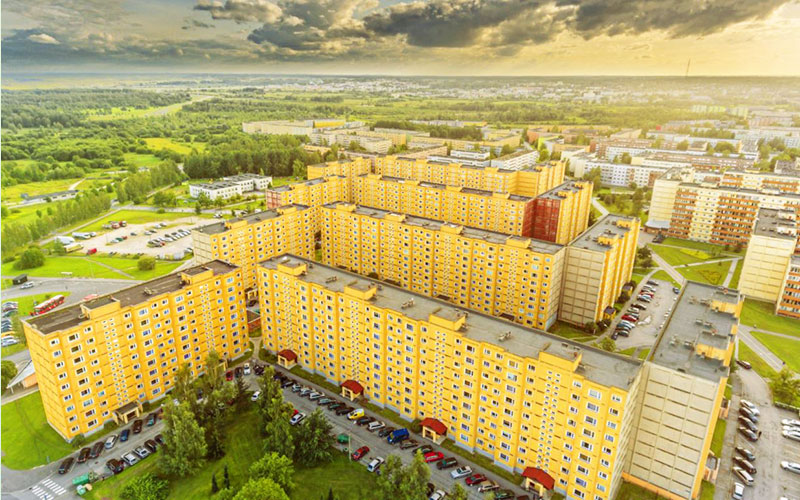News
Eesti Energia is helping to make three Annelinn’s apartment buildings energy efficient
Eesti Energia will install storage units and electric car chargers for three nine-story apartment buildings in Annelinn and combine them with a flexible energy management solution, helping to make the buildings energy efficient.
The solutions are part of the Open Lab project run by the City of Tartu, during which the apartment buildings will be completely renovated. Factory pre-processed panels will be used during the renovation; solar power plants, heat storage units and smart home solutions will be installed to the buildings, and the surrounding public space will be tidied up.

According to Kaur Lauer, Development Manager at Eesti Energia, making apartment buildings energy efficient is essential to achieving climate neutrality. “This is a large and complex project that has the potential to make a significant contribution to Estonia's journey to zero, to carbon neutrality,” Lauer said. “There are hundreds of thousands of homes in Estonian apartment buildings that were constructed during 1960-1990 and are now depreciating. We are participating in this project with great interest, because if it succeeds, we will be able to offer a similar comprehensive package for other apartment buildings in the future.”
The potential of innovative solutions in Estonia is big. According to the long-term strategy for the reconstruction of Estonian buildings over the next 30 years, 14,000 apartment buildings will have to be rebuilt to a minimum of energy efficiency class C, 22% of them, i.e. more than 3,000 by 2030.
Eesti Energia has three goals in this project: to manage renewable energy so that own consumption is maximized by means of storage units, to install 9 smart electric car chargers and a flexible energy management system that enables to save on investments and fixed costs, but at the same time ensures the reliability of all devices.
“In addition to the fact that apartment buildings can start using self-produced electricity and thus save costs, a storage solution is important in emergency conditions to ensure the operation of lifts, lighting and ventilation during power outages,” Lauer said.
Despite the fact that comprehensive solutions similar to Open Lab for large apartment buildings have not yet been implemented in Estonia, Lauer emphasized that apartment associations planning to renovate could contact Eesti Energia now, so that the result be a comprehensive solution that would be up-to-date for decades.
“The renovation of an apartment building is a long process. If they start planning today, in a few years' time, associations and their residents will be able to reap the benefits not only of the cheap energy produced by solar panels, but also of earning additional income in the energy markets through the batteries connected to them,” Lauer described. “Within the next ten years, a large number of current petrol and diesel cars will be replaced by electric cars. It makes sense to create a charging readiness for them in a smart and comprehensive manner to keep additional costs to a minimum in the future.”
The renovation of apartment buildings in Tartu under the Open Lab project takes place in cooperation with the City of Tartu, the Baltic Research Institute, the Tartu Regional Energy Agency, the University of Tartu, Tallinn University of Technology, Gren, and Eesti Energia. The Open Lab project (Open innovation living labs for Positive Energy Neighborhoods) is funded by the European Commission through Horizon 2020 Green Deal. The city of Pamplona in Spain and the city of Genk in Belgium are also participating in the project. Total cost of the project is € 5.5 million, of which Eesti Energia's budget covers approx. € 300,000.
There are a total of 33 parties in the consortium, seven of which are involved in the Tartu Annelinn project. The renovation will start in 2023 and end by the end of 2025. The funding number of the project is 101037080.